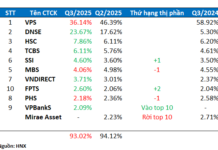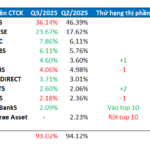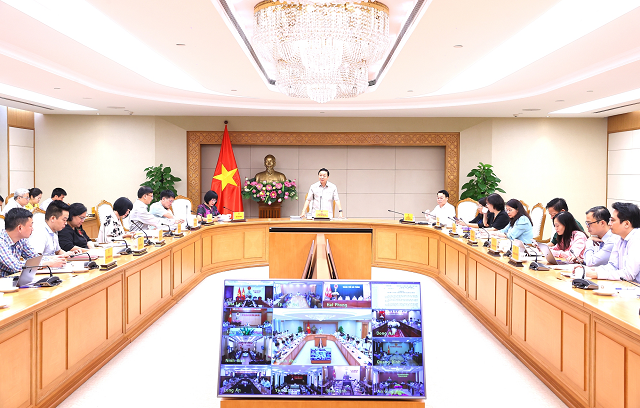The vibrant atmosphere and fiery passion portrayed a confident INDOCHINE, proud to be the official distributor of luxury real estate in North Nha Trang, ready to conquer the high-end property market.
A Symphony of Faith and Aspiration
On the evening of August 19, the Dong Drum Square – the heart of the Libera Nha Trang urban area – transformed into a unique stage for a special performance. The La Tien Villa launch event showcased captivating artistic performances within a distinct cultural concept, differing entirely from previous launches. Lights, music, and theatrical language guided thousands of warriors from the ancient myths of Tien Land to the vibrant present and prosperous future of North Nha Trang.
In that moment, INDOCHINE was honored to be named the official distributor of the La Tien Villa project. This is not only a new mission for INDOCHINE in delivering real estate to customers but also an affirmation of the company’s reputation and capabilities by the project’s investor. With a team of experienced, passionate, and creative consultants, INDOCHINE promises to offer customers the best experiences at La Tien Villa.

INDOCHINE becomes the strategic distributor of La Tien Villa
Sharing her thoughts on becoming the distributor of La Tien Villa, Ms. Le Thi Hang, CEO of INDOCHINE Real Estate Joint Stock Company, affirmed: “It is an honor to accompany La Tien Villa, but it is also a responsibility. INDOCHINE does not stop at project distribution but also connects elite lifestyles to refined homeowners.”
“INDOCHINE commits to joining forces with the project’s investor and development unit to make La Tien Villa a new symbol in dynamic Nha Trang, offering an ideal living and resort space for the elite seeking an unprecedented standard of living and a winning investment product with high returns,” added Ms. Hang.
The strategic partnership between reputable brands like INDOCHINE, KDI Holdings, and Masterise Homes assures customers of their choice in selecting La Tien Villa. Each villa in the project will not only be an asset but also a generational legacy, setting a new standard for luxurious living by the emerald bay.
La Tien Villa – Pioneering Luxury Real Estate in North Nha Trang
While Nha Trang has long been renowned as the city of the blue sea and golden sunshine, La Tien Villa is a masterpiece that adds a new hue to this picturesque landscape. Strategically located in the center of North Nha Trang, on the extended Tran Phu street, La Tien Villa boasts a rare ‘leaning on the mountain, facing the bay’ terrain. Backed by the majestic Co Tien Mountain and facing the sparkling emerald bay, it perfectly blends nature and feng shui, creating a ‘Tien Land – Emerald Bay’ realm that promises prosperity for its refined homeowners.
The project is crafted as a pioneering villa compound in North Nha Trang, featuring 668 limited-edition villas. Each villa is designed as a ‘breathing home,’ where natural light and breeze freely flow, and the fusion of modern interiors and natural elements creates a balanced living environment. With 6 types, 8 layouts, and 6 distinct exterior architectural styles, La Tien Villa offers a diverse yet exclusive selection.

Artistic extravaganza with captivating performances at the La Tien Villa launch event
Notably, all villas are delivered fully furnished in the Modern Wabi Sabi style – simple yet elegant, luxurious yet intimate, evoking a sense of tranquility in every detail. Beyond aesthetic value, this style reflects a philosophy of life: emphasizing stillness and genuine connection with nature.
La Tien Villa’s array of amenities forms a miniature world where residents can indulge in both resort-style living and modern conveniences. From the grand music square accommodating thousands of people, the towering Dong Drum symbol, and unique traditional musical instruments to the vibrant commercial street, world-class sports complex, infinity pool, and international-standard healing center, everything is harmoniously connected, offering a multifaceted experience for the resident community.

3D rendering of the ‘breathing’ villas at La Tien Villa
With a construction density of less than 20%, most of the area is dedicated to greenery and water features, ensuring La Tien Villa not only provides a luxurious living space but also preserves nature’s original beauty. This affirms the sustainable development philosophy pursued by KDI Holdings and Masterise Homes, with nature as the foundation, culture as the soul, and people as the focal point.
La Tien Villa carries the message of “Lasting memory – Lasting freedom.” In this journey, INDOCHINE not only acts as a distributor but also as a companion, helping customers find their ideal sanctuary, where living values are cherished and cultural pride is shared.
By becoming the official distributor of La Tien Villa, INDOCHINE has once again asserted its position as a continuously growing brand, ready to partner with luxury projects and offer classy choices to customers. With a determined spirit, the INDOCHINE team confidently conquers its goals, ensuring that La Tien Villa becomes not just a destination but a symbol of a new lifestyle in Nha Trang.
Proud, determined, and full of aspiration, INDOCHINE is prepared to continue the story of La Tien Villa, transforming the land of fairies by the emerald bay into a beacon of pinnacle living values.
Unlocking the Secrets to Effective SEO: A Guide to Writing Compelling Content
The Ca Mau Tax Department has taken action against Ho An Tap, owner of the “most beautiful building in Ca Mau,” by ordering the enforcement of his bank account to collect fees for the change of land use purpose. The building was constructed without permission on agricultural land. However, Mr. Tap’s account has no funds.
The Golden Province of Khánh Hòa and Đắk Lắk: Unveiling a Prosperity of Mega Projects
The coastal province of Khanh Hoa and the highland province of Dak Lak simultaneously commenced construction on several projects to commemorate the 80th anniversary of the August Revolution and National Day, September 2nd, 1945-2025.
The Ultimate 3D Dome Mapping Art and Cultural Experience for the Real Estate Industry
La Tiên Villa – an opulent real estate development in Bac Nha Trang, Khanh Hoa – invites you to escape the hustle and bustle of daily life and embark on a journey back to your roots. Immerse yourself in the captivating call of nature and delve into the rich cultural depths of Nha Trang through a rare and captivating 3D Dome Mapping art exhibition, a unique experience within the realm of real estate.
Casamia Balanca Hoi An: Riverside Retreat in the Heart of Heritage
In a highly competitive real estate market, discerning investors seek out properties with rare locations, limited quantities, and sustainable value propositions. Casamia Balanca Hoi An is one such project, nestled in the ecological heart of the Co Co River’s edge. This development connects heritage, nature, and the pulse of modern life.













































